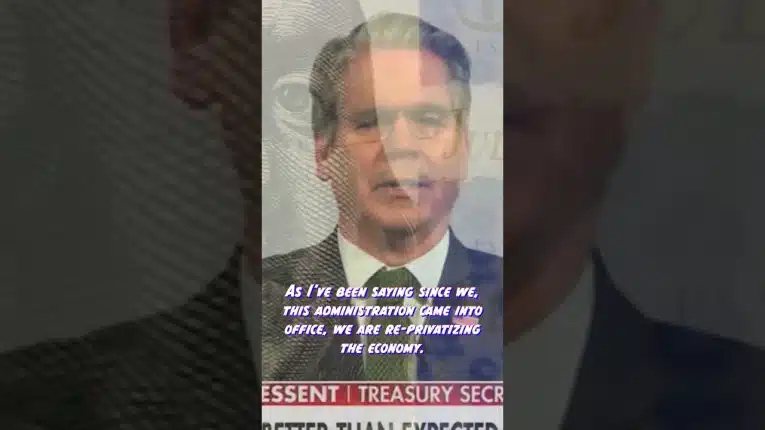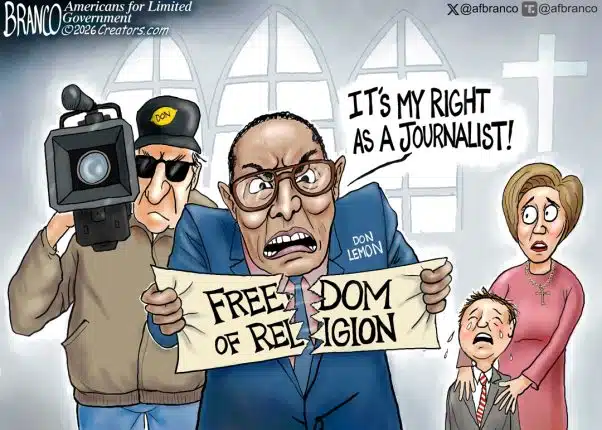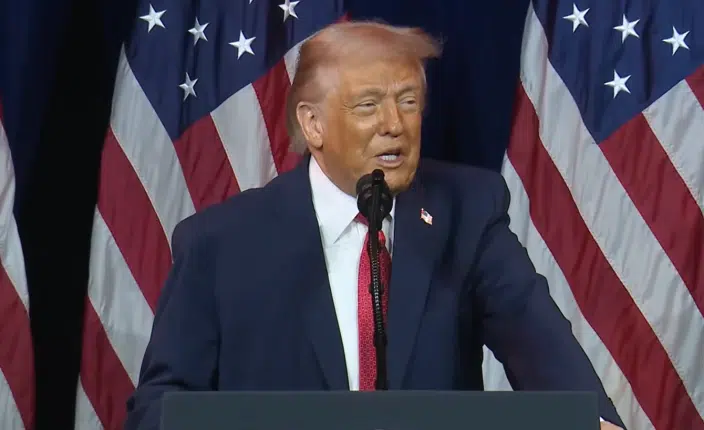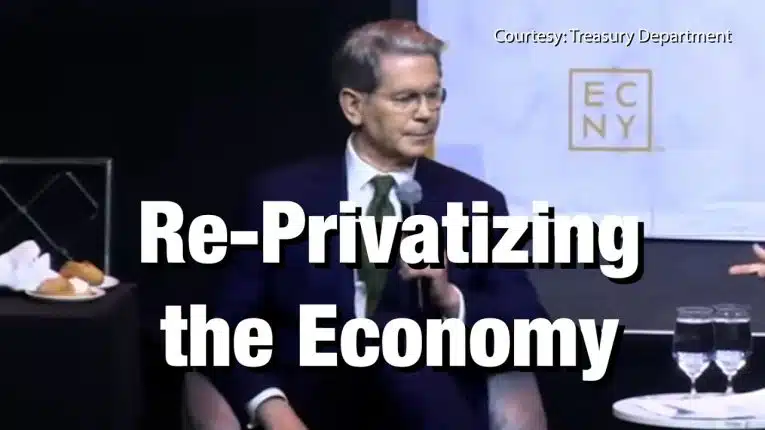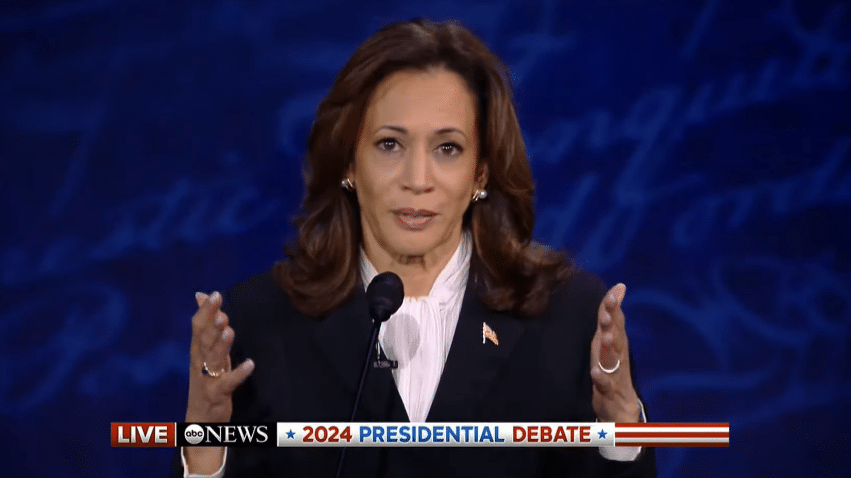
The first fifteen minutes of the Sept. 10 ABC News debate — roughly 16 percent of the airtime — between Vice President Kamala Harris and former President Donald Trump was devoted to the economy and inflation, by far the top concern of voters in poll after poll taken nationally this election cycle.
And on the economy, the post-debate CNN flash poll showed Trump led by 20 points, 55 percent to 35 percent, based on what the American people saw in the debate. If the election boils down to bread-and-butter household budgets — as it occasionally does — Harris could be in real trouble.
It is little wonder. The very first question out of the gates was on the economy, where Harris was pressed, “When it comes to the economy, do you believe Americans are better off than they were four years ago?”
Harris couldn’t answer. Or wouldn’t, since the answer is obvious. By every measure, Americans’ wages and incomes have simply not kept up with the cost of consumer goods. Overall consumer prices for everything are up 18.9 percent. Personal incomes, which include government transfer payments from all the printed money, are only up 18.6 percent. Median nominal weekly earnings for wage and salary workers are only up 17 percent.
Instead, Harris opted to start out by proclaiming herself the product of a middle-class household and acknowledging some of the pain: “the cost of housing is too expensive for far too many people.” We know. Shelter is up 21.8 percent. Interest rates have surged, including 30-year mortgage interest rates, from 2.7 percent in Feb. 2021 to 6.35 percent today.
Harris also admitted: “We know that young families need support to raise their children.” We know. Food is still up 21.8 percent since Feb. 2021. Electricity is still up 27.3 percent in that time. The American people cannot keep up with their monthly household bills.
In other words, we are not better off than we were four years ago, and Harris all but admitted it. The American people are concerned — and they should be. Unemployment is rising once again, up 1.4 million since Dec. 2022, underscoring that the worst remains ahead.
And Trump reminded voters of that reality, stating, “we’ve had a terrible economy because inflation has — which is really known as a country buster. It breaks up countries. We have inflation like very few people have ever seen before. Probably the worst in our nation’s history. We were at 21%. But that’s being generous because many things are 50, 60, 70, and 80% higher than they were just a few years ago. This has been a disaster for people, for the middle class, but for every class.”
Later, Trump expounded on the harsh reality, stating, “I had no inflation, virtually no inflation, they had the highest inflation, perhaps in the history of our country because I’ve never seen a worse period of time. People can’t go out and buy cereal bacon or eggs or anything else. These the people of our country are absolutely dying with what they’ve done. They’ve destroyed the economy…”
Harris tried to spin the economy by stating that Trump’s tariffs on international trade, one of the issues that helped Trump win in 2016 in Pennsylvania, Michigan and Wisconsin, were some sort of national sales tax, which Trump swiftly dealt with by reminding the audience that President Joe Biden and Harris had done nothing to remove the tariffs on China that Trump had put into place: “if she doesn’t like ’em they should have gone out and they should have immediately cut the tariffs but those tariffs are there three and a half years now under their administration.” And yet, Trump did it without inflation in contrast to Harris and Biden: “they never took the tariff off because it was so much money, they can’t. It would totally destroy everything that they’ve set out to do. They’ve taken in billions of dollars from China and other places. They’ve left the tariffs on. When I had it, I had tariffs and yet I had no inflation.”
Harris also tried to claim that unemployment when she and Biden took office in 2021 was the worst since the 1930s: “Donald Trump left us the worst unemployment since the Great Depression…” But that was not even remotely true.
The unemployment rate was 6.4 percent in Jan. 2021, about where it was in May 2014 at 6.3 percent following the Great Recession that took years to recover from. By contrast, the recovery Trump orchestrated from Covid was rapid. Although during Covid unemployment did spike upwards temporarily amid the economic lockdowns, by the end of 2020, 16 million of the 25 million jobs lost had already been recovered when Trump left office, and the rest followed within the next year.
So, on the economy, the top issue in the campaign, Trump had a story to tell.
Trump turned in a similar performance on his signature issue, immigration, crushing Harris 56 percent to 33 percent. And they gave Trump an edge on being commander-in-chief, 49 percent to 43 percent, as Trump hammered home the world being in a state of chaos, with wars in Ukraine and Gaza, the botched withdrawal of Afghanistan that Trump said emboldened America’s adversaries and Iran being on the brink of achieving nuclear weapons (if they haven’t already done so).
So what did Harris do well on? Per the CNN poll, abortion, 52 percent to 31 percent, and protecting democracy (whatever that means), 49 percent to 40 percent.
These were the candidates’ strengths and weaknesses headed into the debate, and so, unsurprisingly, each chose to emphasize those issues as much as they could.
Trump’s advantage, with less than two months to go, is that monthly household bills will continue to come in that Americans cannot afford, reminding them that Trump was right. Inflation was lower when he left office. Again, if the election boils down to the economy, Trump closed the deal and Harris, who is now demanding another debate, could be in very real trouble. She didn’t make the sale. The economy still stinks — and the American people know it.
Robert Romano is the Vice President of Public Policy at Americans for Limited Government Foundation.


